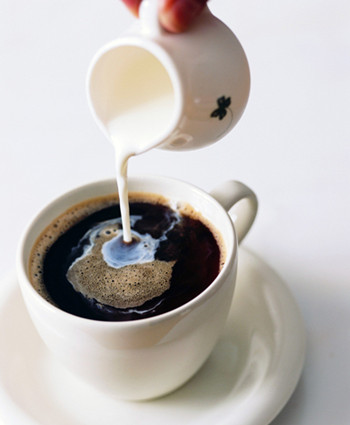Coffee drinking healthy life caffeic acid can effectively inhibit colitis

Recently, researchers have found that the increased expression of a cellular respiratory enzyme (CYP4B1) is an important indicator that caffeic acid can inhibit colitis in mice. Caffeic acid is an anti-inflammatory antioxidant commonly found in food.
The findings are published in the June 2009 issue of Experimental Biology and Medicine. CYP4B1 is a cellular respiratory enzyme that has been reported in other models to be associated with the regression of allergic inflammation. Tissue damage in colitis has been pathologically observed that caffeic acid treatment can inhibit colitis and is associated with returning CYP4B1 to normal expression. Compared with rutin, a bioflavonoid, and an African potato extract (hypoxoside), all three substances have anti-inflammatory effects, inhibit the production of bone marrow peroxidase, IL-17, and iNOS, and increase the amount of IL-4, which are all related to inflammation, but only caffeic acid can protect colitis induced by glucan sulfate. This novel mechanism is related to CYP4B1, and research is under way. The team fed 8-week-old mice a diet containing the above ingredients and then given low doses of glucan sulfate to induce colitis. The study of caffeic acid allows us to further study the role and mechanism of medicinal plants or plant foods in inhibiting colitis, or in colon cancer, because colitis also increases the risk of this cancer.
In summary, a return to normal performance of CYP4B1, a drug metabolite, is associated with inhibition of inflammation-induced injury. It can be used as an indicator of the effective effect of caffeic acid, which is commonly found in plant foods in the human diet. It can inhibit small intestinal tissue damage in the way mice stimulate colitis. The research of Hendrich and colleagues can help us design more effective treatments to prevent or reduce colitis in the future.
Important Notice :
前街咖啡 FrontStreet Coffee has moved to new addredd:
FrontStreet Coffee Address: 315,Donghua East Road,GuangZhou
Tel:020 38364473
- Prev

Coffee common sense what is the attractive charm of coffee?
Its appropriate bitter taste, fragrant mellow, plus the charm of caffeine. Alcohol or tobacco can make people feel intoxicated and exciting, just as caffeine can be exciting. Caffeine, due to the role of stimulating the central nervous system or muscles, can restore muscle fatigue, improve work efficiency, and have a sober effect that can make the mind respond lively and sensitive.
- Next

Scientists say coffee harm is exaggerated
Coffee is thought to be bad for the heart, burdening the stomach and possibly even causing cancer, but it is unfair to carry all kinds of accusations and some health risks are misled, scientists said. Coffee may actually reduce the risk of diseases such as Parkinson's disease and diabetes, according to the International Coffee Science Association
Related
- Beginners will see the "Coffee pull flower" guide!
- What is the difference between ice blog purified milk and ordinary milk coffee?
- Why is the Philippines the largest producer of crops in Liberia?
- For coffee extraction, should the fine powder be retained?
- How does extracted espresso fill pressed powder? How much strength does it take to press the powder?
- How to make jasmine cold extract coffee? Is the jasmine + latte good?
- Will this little toy really make the coffee taste better? How does Lily Drip affect coffee extraction?
- Will the action of slapping the filter cup also affect coffee extraction?
- What's the difference between powder-to-water ratio and powder-to-liquid ratio?
- What is the Ethiopian local species? What does it have to do with Heirloom native species?

